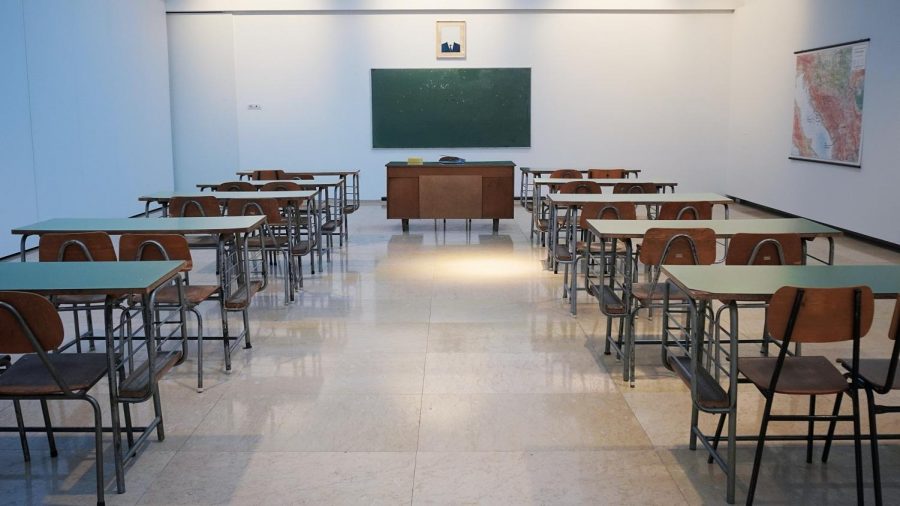How one student group is building community and awareness around ADHD
MADDES is here to help.
The rigidity of a classroom setting is often not ideal for students with attention disorders. Photo courtesy of Unsplash / Ivan Aleksic
April 8, 2021
In 2012, more than 40,000 college freshmen had ADHD.
Having attention deficit hyperactivity disorder (ADHD) or attention deficit disorder (ADD) can be an extra obstacle to success for university students. Since most UA students no longer live at home and are often thrust into large classes where a professor is less available for one-on-one instruction, students managing attention disorders may find themselves without a support system.
Mindful ADDitude, Education and Support (MADDES) is a UA organization dedicated to educating campus at large on ADHD and ADD. The organization also works as a support group for students who have ADHD and struggle with being in the world of higher education.
The group holds bi-weekly meetings every Friday at 4 p.m. via Zoom for UA students and members of the Capstone community to discuss issues surrounding ADD and ADHD. During their meetings and events, MADDES members discuss stigma, diagnoses and support as well as their experiences as students at the University.
MADDES also offers students tips and tricks to managing their ADHD or ADD along with emotional support and solidarity.
In addition to speaking amongst themselves, they also have professionals—including special guests from the Counseling Center—speak at events to offer professional advice on navigating the world of academia and ADHD. They also discuss how to pick up on the symptoms of ADHD and manage them.
Symptoms of ADHD and ADD in individuals can come in a variety of forms and may become more evident when under the pressure of being a college student.
“[Psychologists] are seeing things like impulsivity, time management, forgetfulness and difficulty completing tasks [in individuals with ADHD],” said Breanna Dede, a MADDES member and graduate clinical child psychology student. “Especially in social situations, you might feel you switch topics a lot. It can make you more anxious, and you don’t have someone sort of checking you on those ADHD symptoms.”
According to the Anxiety and Depression Association of America’s website, about half of adults with ADHD also suffer from an anxiety disorder.
“Sometimes it can feel like the one consistency for people with ADHD is inconsistency,” Dede said.
Individuals on the ADHD and ADD spectrum often face social and professional discrimniation in school or workplace environments.
“Humanizing ADHD is important at a human every day level,” Dede said.
And while many people suffer from ADHD, some don’t take it seriously within work environments or social circles. Those who are unfamiliar with attention disorders may just assume a classmate is being rude or inconsiderate by simply blurting answers or thoughts out as they come to mind.
“ADHD has nothing to do with being rude,” said Rachel Noble, a MADDES member and UA sophomore majoring in environmental science.
Jessica Tashbin, a MADDES member and a senior majoring in psychology, explained the concept of “verbal aggression” and how it often goes unnoticed in girls.
“Especially with ADHD in girls, [a symptom could be] impulsive aggression of your thoughts verbally,” Tashbin said. “When I was a kid, I would be loud and talkative—I would always get in trouble for talking.”
Deidre Gilligan, a licensed master social worker and UA Counseling Center staff therapist, said that for individuals who are on the ADHD spectrum, it’s important to be kind themselves in times of trouble or under the stress of academic settings.
“It is not unusual for someone to be great with following their schedule then fall off. Self kindness is so important and meeting yourself where you are,” Gilligan said. “The ADHD brain wants novelty. It wants flexibility and change.”
MADDES holds weekly meetings, and interested students can find out more on the group’s SOURCE page.











